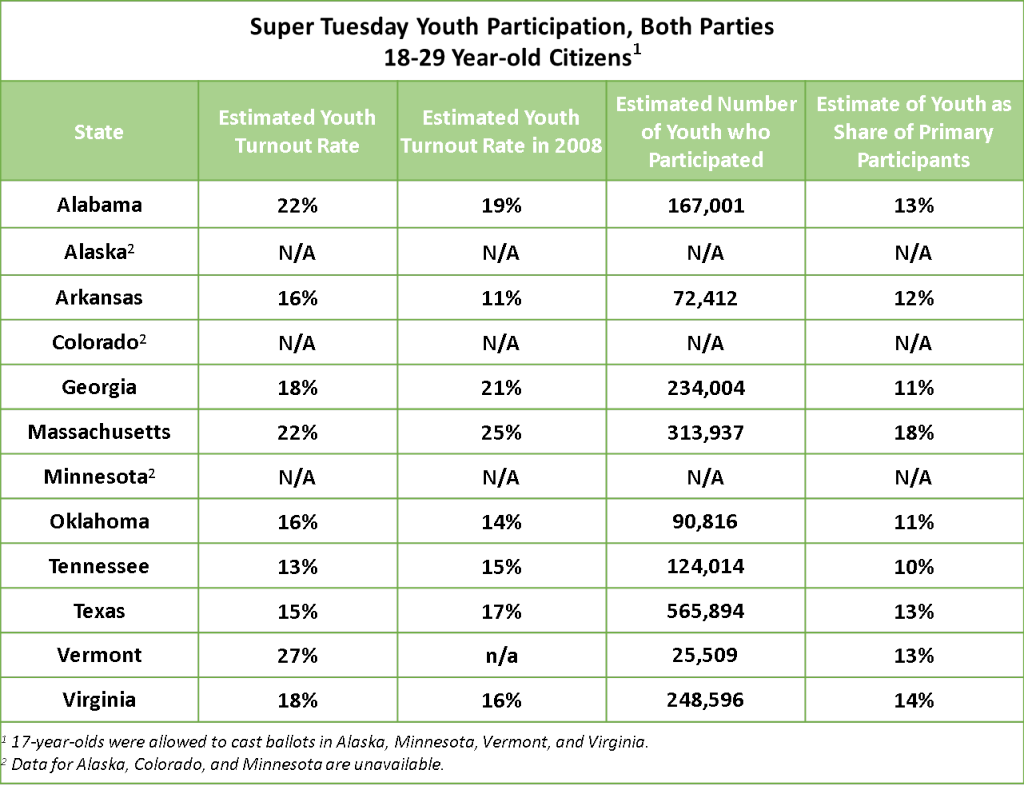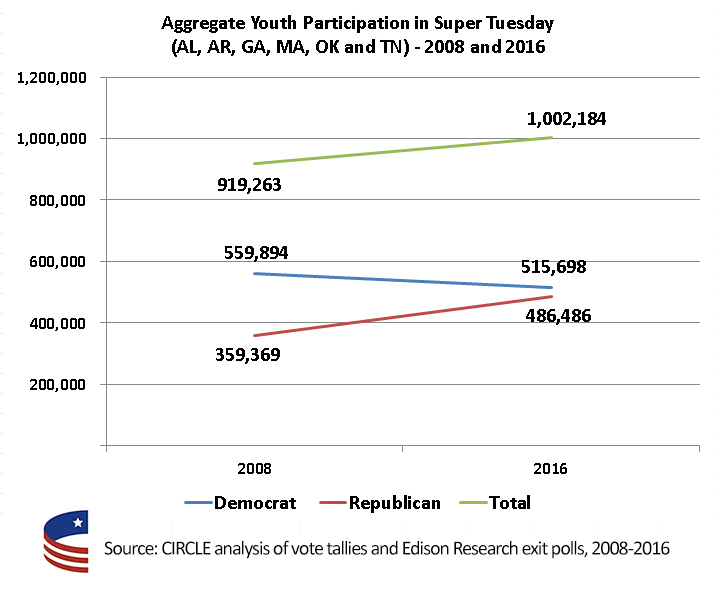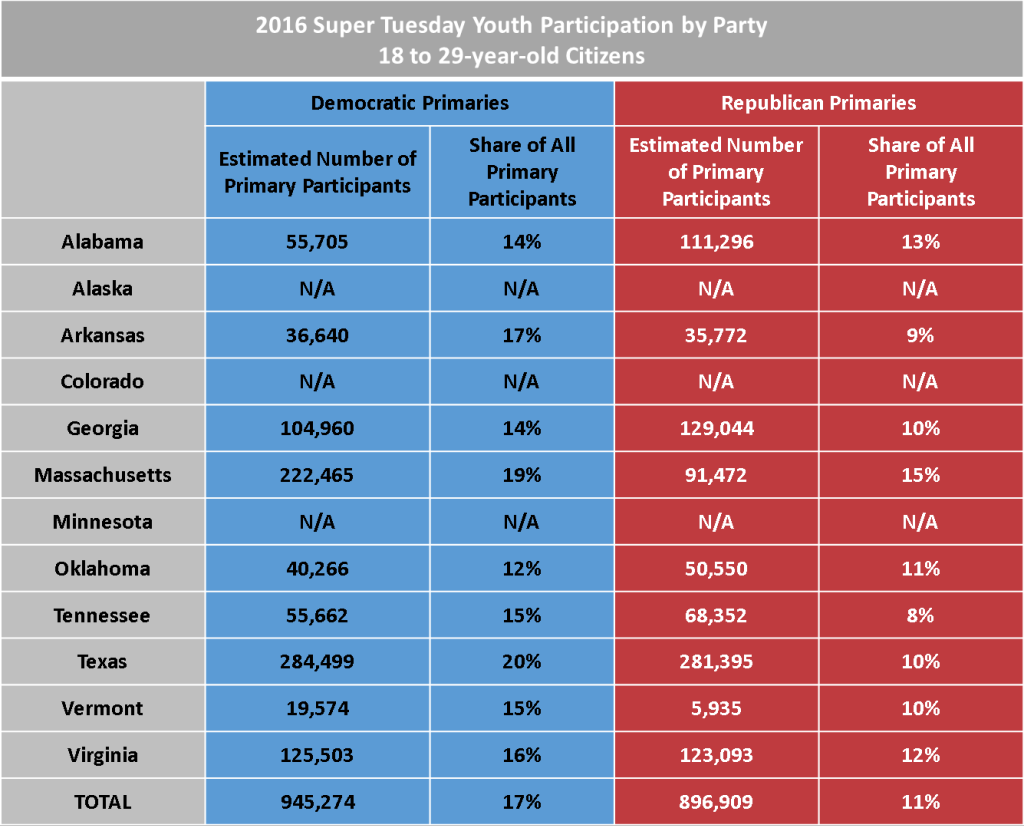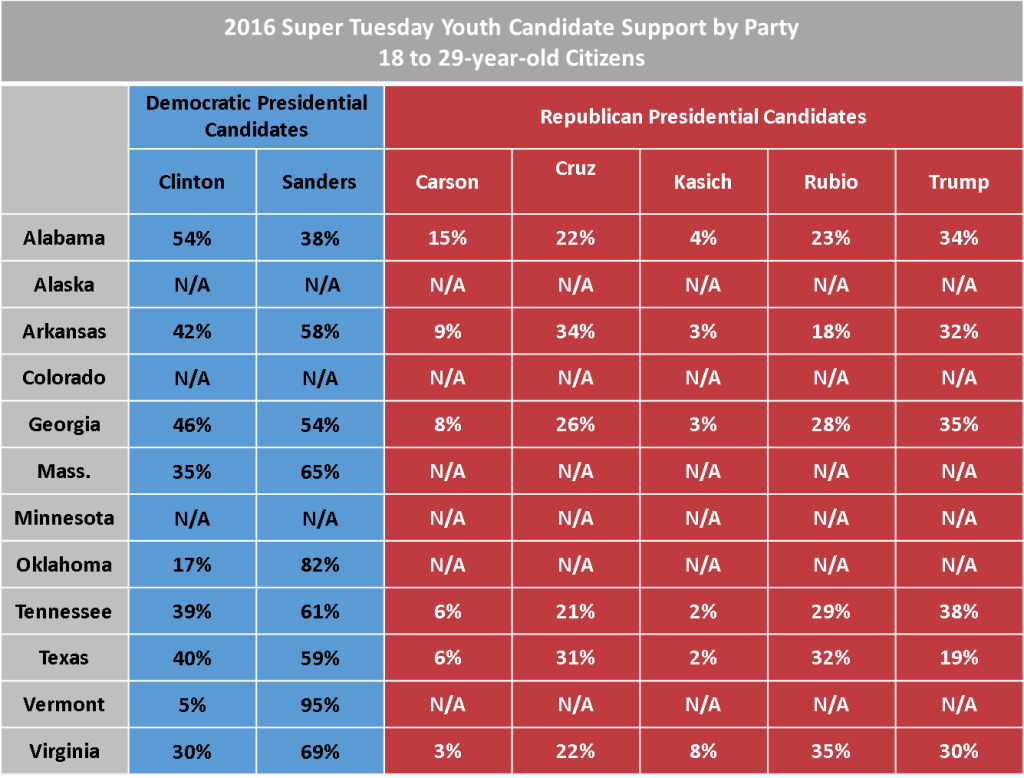High Youth Turnout on Super Tuesday Exceeded Impressive 2008 Participation in Several States
An estimated 1.8 million young people participated in Super Tuesday’s primaries and caucuses, almost a million youth in the Democratic contests and around 900,000 in the Republican contests. With a number of strong showings across many states, young people continued this year’s trend of high participation that rivals the numbers from 2008, when youth turnout in some cases tripled that of previous years. Young Republican participation, especially, has increased compared to 2008, sometimes by dramatic amounts. And in both parties young people are still not rallying around the frontrunners.
2016 Primaries Rivaling Very High 2008 Turnout
Estimated youth turnout was high in Super Tuesday states, exceeding or rivaling turnout in 2008. This is notable because youth turnout in the 2008 primaries and caucuses almost tripled across the board compared to 2000, the previous year with competitive nominating contests in both parties.
Compared to 2008, the estimated youth turnout went up in Alabama, Oklahoma, Virginia, and Arkansas—rising by about 5 percentage points in the latter. We estimate that youth turnout in Senator Bernie Sanders’ home state of Vermont was 27%, the highest of any Super Tuesday contest, but data is unavailable to compare that to 2008.
Youth Build Their Proportion of Democratic Primary Electorate, While Youth Republican Participation Increases
Young voters made up a larger proportion of the Democratic primary electorate than in 2008. In Texas, for example, the exit poll estimates that youth made up 20% of Democratic primary voters. While the overall number of young participants in Democratic contests went down since 2008, the data suggest the youth drop off may not have been as high as that of older voters.
Meanwhile, the estimated number of youth who voted in Republican contests increased compared to 2008. In some states, the increase was substantial. In Texas, 171,000 youth participated in 2008 and 281,000 in 2016. In Virginia, where more youth supported Senator Rubio than the state’s winner, Donald Trump, youth participation went from an estimated 53,000 in 2008, to 123,000 in 2016.
Young People Still Not Rallying Around Frontrunners
As in previous contests, young people participating in the Super Tuesday Republican primaries were not as supportive of Donald Trump as older voters. In three states—Arkansas, Texas (where Senator Cruz won), and Virginia—young voters supported Rubio or Cruz more strongly than Trump. In Alabama and Georgia, youth did support Trump more than any other candidate, but by the smallest margin of any age group. Young people supported Trump at about the same level as the overall electorate in only two of yesterday’s primaries (Arkansas and Tennessee). Young people were often Senator Rubio’s strongest supporters, but even with high youth participation, older voters made up a larger proportion of the Republican electorate. (Data is unavailable for MA, OK, and TX).
On the Democratic side, young people generally continued to support Senator Sanders, but to varying degrees. In Oklahoma and Vermont, both of which Sanders won, he received a decisive 80+ percent of the youth vote. He garnered about two-thirds of youth votes in five states that he lost: Arkansas, Massachusetts, Tennessee, Texas, and Virginia. In Georgia Sanders only received 55% of the youth vote, and he lost young voters in Alabama. Notably, among Super Tuesday states, Georgia and Alabama have the highest proportion of African American youth (36% and 32%, respectively). Disaggregating youth vote choice by race and ethnicity can often highlight large differences; keep an eye out for more detailed CIRCLE analysis of the youth vote on Super Tuesday.
While data is important for understanding youth participation related to Super Tuesday, views from the ground are also critical. CIRCLE gathered several reflections from practitioners working with youth in Super Tuesday states that provide insight into education and outreach efforts by youth, educators, and nonprofits.
For regular updates in your inbox about youth and the 2016 election, sign up for CIRCLE’s monthly E-Update here.









